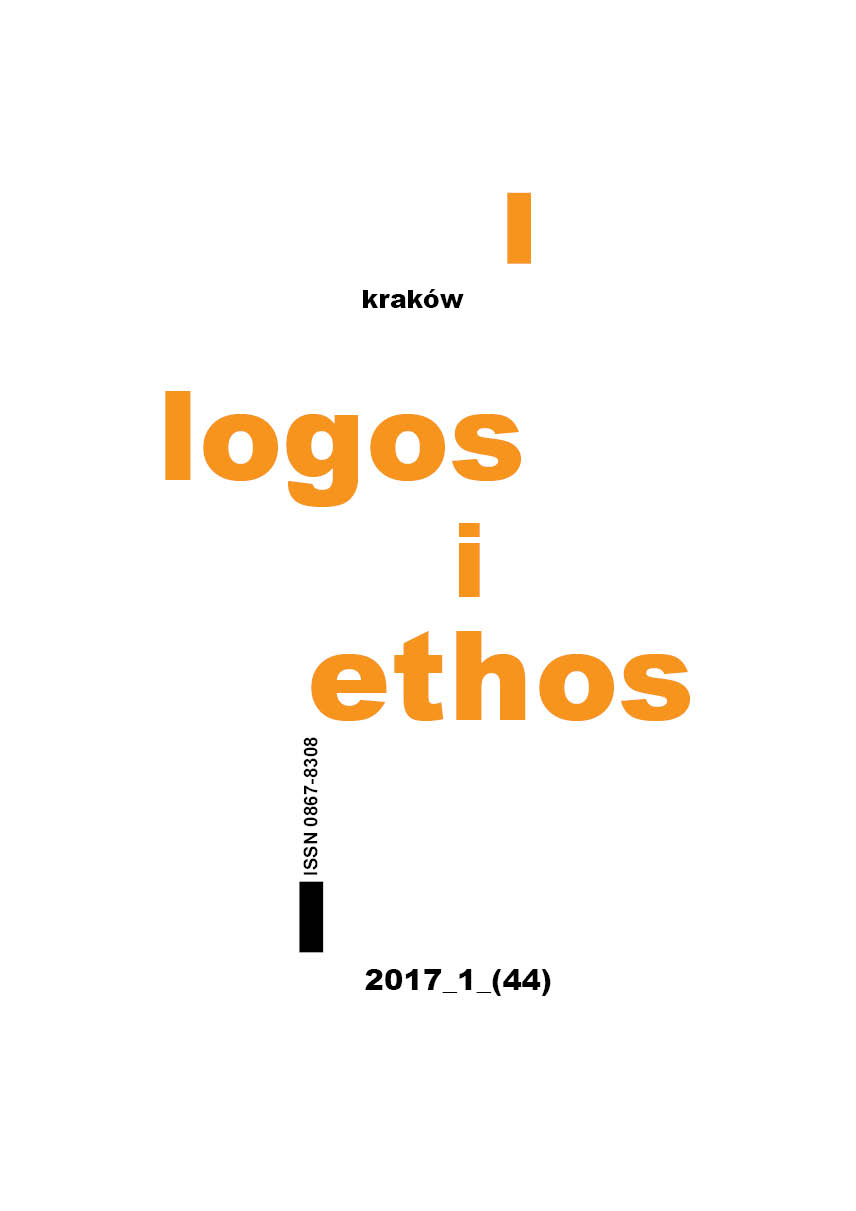The Demand of the Other in Paul Ricœur’s Philosophical Hermeneutics
DOI:
https://doi.org/10.15633/lie.2122Słowa kluczowe:
Ricœur, nakaz Drugiego, etyka, podatność na zranienieAbstrakt
W artykule proponuję spojrzenie na etykę Paula Ricœura i nakaz Drugiego pod kątem treści poruszanych w jego dziele O sobie samym jako innym, takich jak: „ja” i Drugi, który cierpi, przyjaźń, „dobre życie” rozumiane jako teleologiczny horyzont ludzkiej egzystencji. Moim celem jest ukazanie, że Ricœur sytuuje nakaz Drugiego w „rozumieniu”, które jest pojmowane jako fundamentalny sposób bycia‑w‑świecie. Etyka Ricœura obejmuje przede wszystkim zagadnienie podatności na zranienie, wzajemną odpowiedzialność, dobroć i troskliwość. Ricœur twierdzi, że prawdziwa odpowiedź na nakaz Drugiego równa się wartościowemu, spełnionemu życiu i wyraża się w jego narracyjnej spójności. Artykuł podejmuje również temat debaty pomiędzy Ricœurem i Levinasem wokół relacji „ja” i „ty”, i różnic w podejściu do niej: model Ricœura zakłada odpowiedź Drugiego, podczas gdy Levinas mówi o relacji, która nie musi być oparta na wzajemności.Bibliografia
Carter J., Ricœur on Moral Religion: A Hermeneutics of Ethical Life, Oxford 2014.
Cavarero A., Relating Narratives: Storytelling and Selfhood, London–New York 2000.
Gadamer H.-G., Philosophical Hermeneutics, transl. & ed. D. E. Linge, Berkeley–Los Angeles 1977.
Kaplan D. M., Reading Ricœur, Albany 2003.
Levinas E., Ethics and Infinity, Conversations with Philippe Nemo, transl. R. A. Cohen, Pittsburgh, PA 1985.
Levinas E., Totality and Infinity, Pittsburgh 1969.
Paul Ricœur: Honoring and Continuing the Work, ed. F. Erfani, New York–Toronto–Plymouth 2011.
Pirovolakis E., Reading Derrida and Ricœur: Improbable Encounters Between Deconstruction and Hermeneutics, New York 2010.
Ricœur as Another: The Ethics of Subjectivity, eds. R. A. Cohen, J. L. Marsh, Albany 2002.
Ricœur P., Interpretation Theory: Discourse and the Surplus of Meaning, Fort Worth 1976.
Ricouer P., The Just, transl. D. Pellauer, Chicago 2003.
Ricœur P., Narrative Identity, transl. M. S. Muldoon, “Philosophy Today” 35 (1991: Spring) issue 1, s. 73–81.
Ricouer P., The Narrative Path: The Later Works of Paul Ricœur, eds. D. Rasmussen, P. Kemp, Cambridge, MA 1989.
Ricœur P., Oneself as Another, transl. K. Blamey, Chicago 1992.
Wall J., Moral Creativity: Paul Ricœur and the Poetics of Possibility, Oxford 2005.
Pobrania
Opublikowane
Numer
Dział
Licencja
Autorzy publikujący w czasopiśmie udzielają jego wydawcy zgody o następującej treści:
- Autor zachowuje autorskie prawa majątkowe do utworu, a jednocześnie udziela wydawcy czasopisma zgody na jego pierwszą publikację w wersji drukowanej i wersji online na licencji Creative Commons Uznanie autorstwa 4.0 Międzynarodowe oraz zgody na wykonywanie opracowań, w tym przekładów.
- Autor ma możliwość udzielania zgody niewyłącznej na opublikowanie utworu w wersji, która ukazała się w czasopiśmie (np. zamieszczenia go w repozytorium instytucjonalnym lub opublikowania w książce), wraz z informacją o jego pierwszej publikacji w czasopiśmie.
- Autor może umieścić swój utwór online (np. w repozytorium instytucjonalnym lub na swojej stronie internetowej) jeszcze przed zgłoszeniem utworu do czasopisma.

